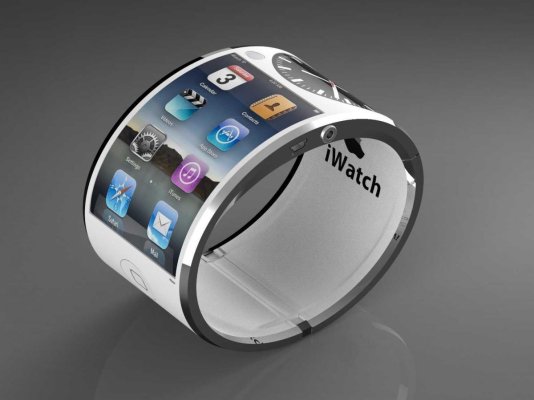The problem is that you all are looking at the issue through your own, rapidly becoming outated eyes. You are seeing problems that your generation doesnt know how to solve because it lacks the vision or imagination as to how future generations will see these same things and figure out how to solve them. History is filled with examples of this. The only reason we are where we are today is because of people who had vision and refused to be talked out of it by people who didn't.
I remember when I was a little kid and adults would be reading the comics in the paper and laughing at how ridiculous and impossible detective Dick Tracy's "two way wrist radio" and other gizmos were.
I suspect that if these adults were still alive today they'd feel pretty foolish thinking back to their claims about Dick Tracy's wrist radio.
One of Boeing's most influential engineers once described in an interview I did with him the people in this industry he referred to as the "Yeah, Buts." These are the people, he said, whose reaction to visionary or seemingly out of the box concepts is always, "Yeah, but" and then they go on to describe all the reasons the concept will never work.
Fortunately, he said, there will always be people who refuse to accept the lmitations of the Yeah, Buts.
Marin,
While I take certain level of personal offense at your suggestion, I'm not going to allow it to cloud my judgment.
What I'm actually looking at, are problems that
already exist.
How many times have you heard that "X can't be hacked", is foolproof, or secure?" Only to find, sometimes sooner rather than later, that it was all posturing?
Every government agency in this country has been hacked at one time or another. Look at the number of corporations that have had security breaches. Banking and communication systems have been hacked.
So to bury one's head in the sand, or in this case the sea, and "assume" that it can't happen to the guidance systems in automated vehicles, vessels or planes, is folly for the foolish.
Will the geek squads of the future be able to route these problems?
Only time will tell. So far, no one has been truly successful.
Of course they can build a better mousetrap, at which time someone will genetically engineer a better mouse:lol:
The one thing I consistent flaw I see in our country, is the failure to plan ahead. To plan for failure.
It's great to plan for success, and God knows we all want it; however, if you don't plan for the failure of the systems, then when not if they fail, you are standing there holding your male genitalia in your hand as we have on so many other occasions. Who knows? Maybe the "outside the box" thinkers your Boeing engineer so gleefully described, could use a little more input from the other side of the box

As for being a "yeah but" type,...no.

I was always intrigued by the gadgets, and while not a "techie" by any stretch of the imagination, always wondered how and when some of these things would come to pass?
In reality, I can see the benefit of unmanned vessels in some situations.
I can see the cost savings and the saving of lives. Pirates? Not a problem.
Weapon systems can be installed that will take care of that problem. When you don't have humans at the helm, you can do things that you might not otherwise do. You can change course and puree the scumbags. You could allow them to board then self destruct (hey, I'm just having a little fun here!), or any number of options that might exist.
But in the case of human or hazardous cargo, not so much.
But as Ready2Go mentioned, what do you think a truly automated unmanned aircraft would have done in N.Y. situation?? The human was a trained glider pilot, and had the forethought, training and more than that, the ability, to put her down in the river.

Now, "if" there is still a pilot on the stick, somewhere back in a control room somewhere, then there's still the possibility that they can make the right decisions. But again, as he mentioned, they really have
no "skin in the game."
OD



